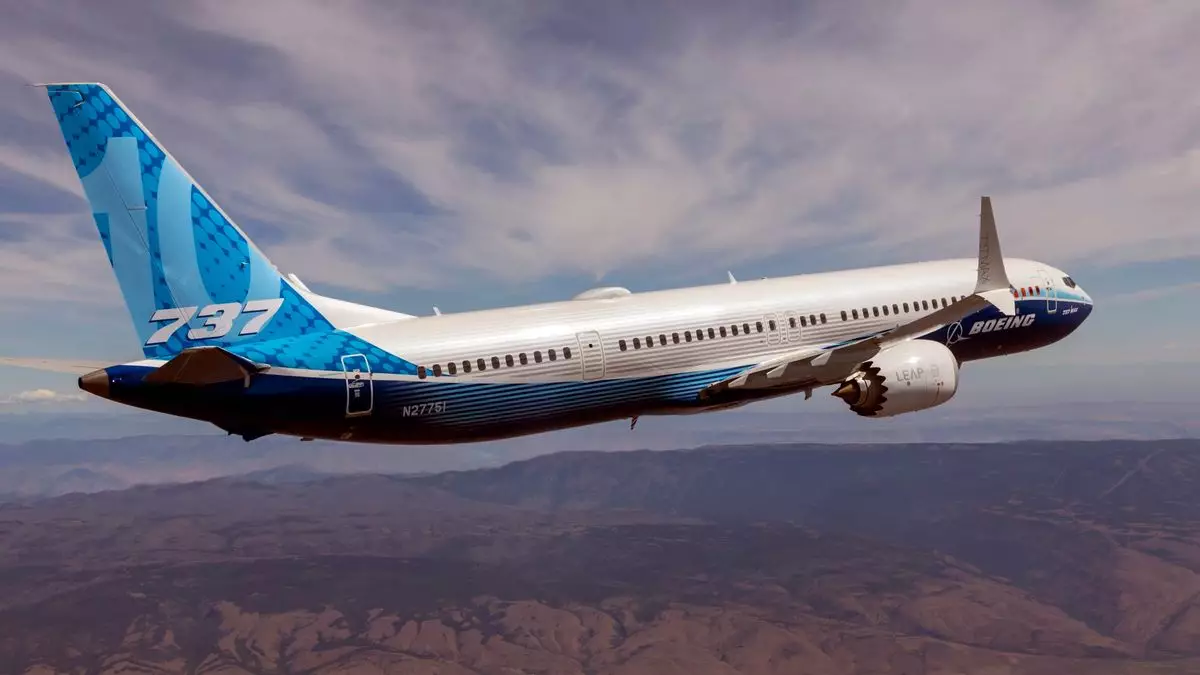In a startling move that has drawn widespread criticism, the U.S. Justice Department has reached a settlement with Boeing that effectively absolves the company of criminal liability linked to the tragic crashes of its 737 Max aircraft. The outcome, originally disclosed on May 23, involves Boeing paying or investing over $1.1 billion—part of which, $445 million, is destined for the victims’ families. This agreement primarily aims to protect Boeing from criminal charges that could impede its standing as a federal contractor. While the settlement may seem like a viable solution for some, deeper scrutiny reveals troubling implications about corporate justice and accountability.
The Justice Department characterized the resolution as an effort to balance the scales of justice, stating that it would hold Boeing financially accountable while providing closure to the affected families. However, this “justice” feels more like systemic neglect than genuine accountability. Families of the victims, who lost their loved ones in the crashes that together claimed 346 lives, are left feeling that true justice has not been served. Some survivors have pushed for a public trial, a course that some argue is vital for both accountability and transparency within the aviation industry.
The Deterioration of Corporate Responsibility
This agreement inherently establishes a disconcerting precedent, sending a strong message not only to Boeing but to corporations nationwide: the cost of negligence can be mitigated through financial compensation alone. Critics have voiced concerns that the settlement might embolden corporations to prioritize profit over safety while simultaneously undermining the principles of accountability.
As Javier de Luis, who lost his sister in one of the crashes, aptly stated, the implicit signal sent by the Justice Department is clear: companies can afford to be negligent, as long as they are willing to write a check. This view resonates deeply within a society that should fiercely guard against corporate malfeasance, especially when lives are at stake.
When examining the circumstances surrounding the crashes, it’s evident that systemic failures in transparency and safety were present well before the incidents occurred. Boeing was accused of misleading the Federal Aviation Administration (FAA) regarding new aircraft software known as MCAS, which played a significant role in the crashes. That an agreement would allow Boeing to sidestep criminal prosecution for these alleged deceptions raises fundamental questions about the sufficiency of corporate regulations in the United States.
Victim Advocacy and Corporate Accountability
The criticism from victim advocates and families of the deceased should not be overlooked. Paul Cassell, an attorney for many of the families involved, condemned the settlement as unprecedented and woefully inadequate given the scale of the tragedy. Families are rightly objecting, pushing against a deal they perceive as an affront to their loved ones’ memory. Their calls for more severe repercussions may reflect a growing discontent with how the system handles corporate transgressions that lead to loss of life.
Furthermore, the law should serve as a deterrent against corporate negligence. Yet with this settlement, it appears that the urgency of enforcing accountability is diminished. The fallout from this tragedy was not just a financial loss for families but a devastating blow that impacted communities, industries, and the very fabric of trust that passengers place in airlines.
The Erosion of Public Trust in Regulatory Agencies
As this situation unfolds, the role of regulatory agencies like the FAA is brought into sharp focus. Did the FAA fail to hold Boeing to strict safety standards? Was the initial certification of the 737 Max influenced by corporate lobbying? Questions loom large, raising concerns about the robustness of the regulatory environment surrounding aviation safety.
The public must grapple with a frightening reality: if Boeing, a behemoth in the aerospace industry, can evade criminal charges for misleading regulators, what does this mean for other corporations? The implications are staggering, suggesting that corporate giants may operate with reduced fear of repercussions for failing to uphold safety and ethical standards.
This sentiment is amplified by the troubling fallout of the settlement—a little over a summer’s worth of financial reparations painted as justice, rather than a profound commitment to ensure safe commercial air travel. In an era where corporate ethics and responsibility are continually being scrutinized, we must question whether the legal frameworks in place are robust enough to hold entities like Boeing accountable for their actions.
Ultimately, the Justice Department’s decision to settle allows Boeing to close a dark chapter of its history swiftly while leaving many questions unanswered, and many families deeply dissatisfied. Without genuine accountability, the message into the future remains disconcerting: corporate negligence may pay off.


Leave a Reply